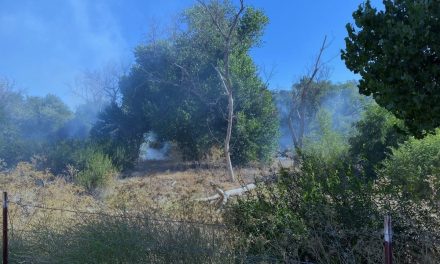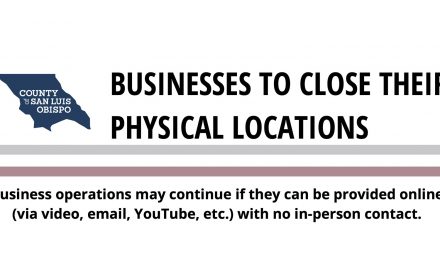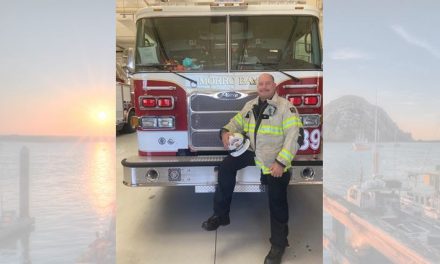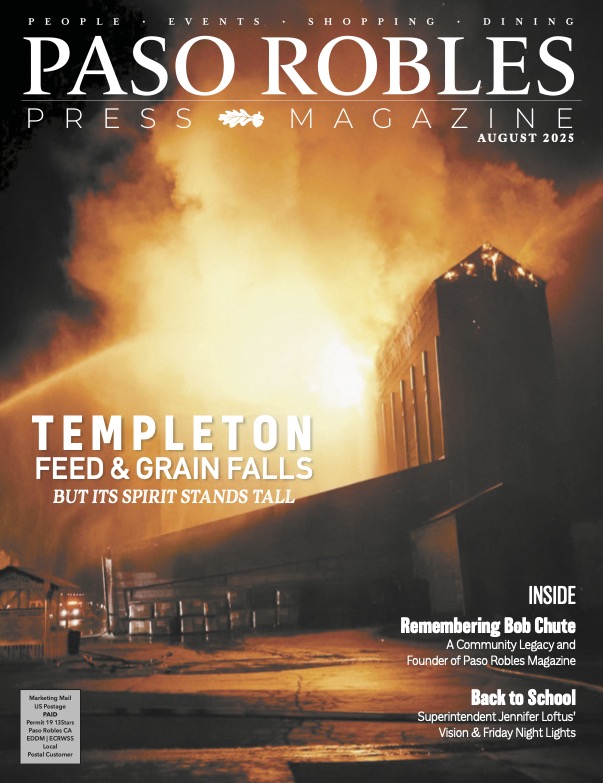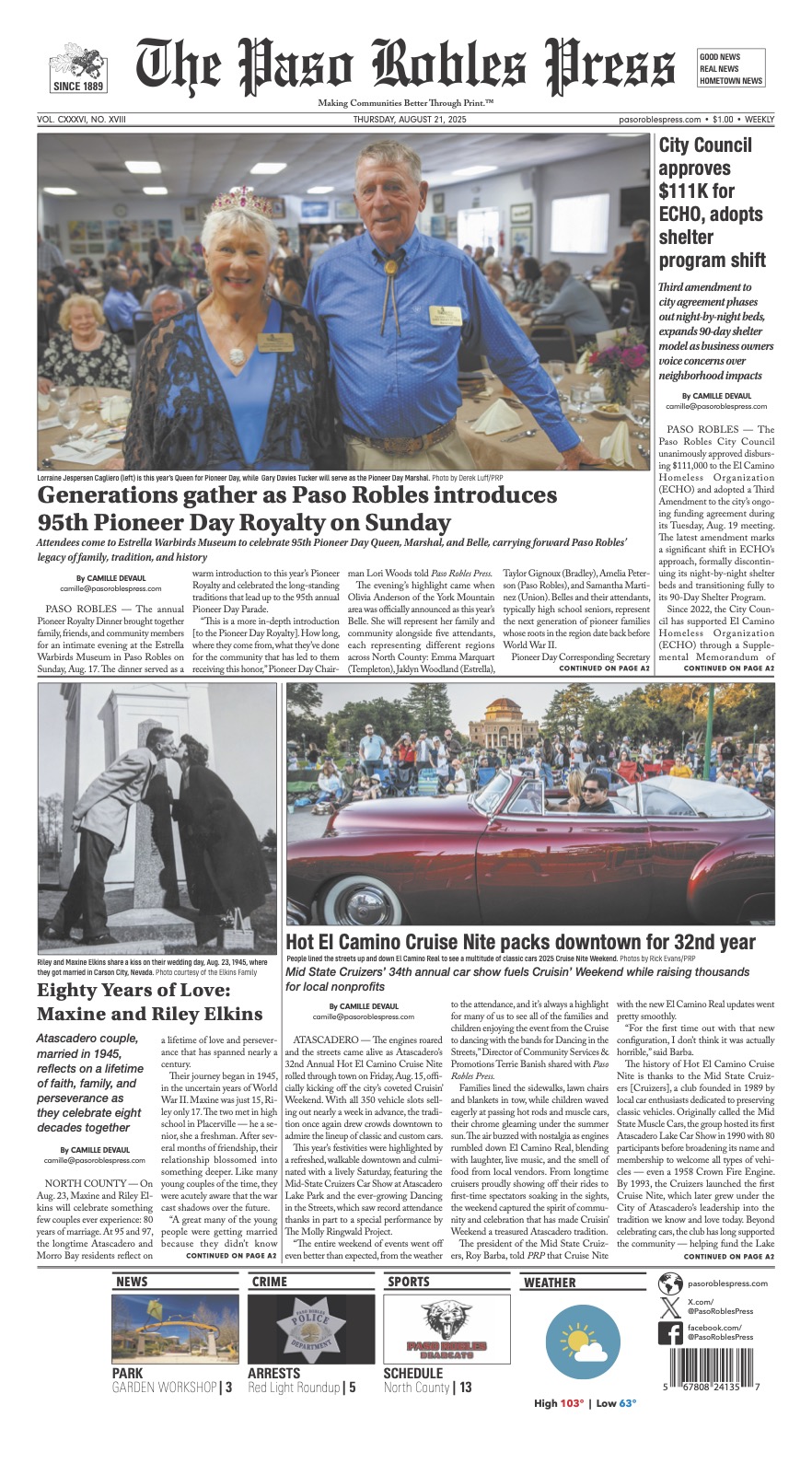SACRAMENTO — With the Thanksgiving holiday weekend approaching, California State Parks, the Bureau of Land Management, and California Governor’s Office of Emergency Services advise outdoor enthusiasts to recreate responsibly by being prepared, flexible and respectful when venturing into the outdoors.
With many activities limited during the COVID-19 pandemic, outdoor public spaces have been essential to many Californians. As a result, high visitation surges are expected this desert season, including over Thanksgiving weekend.
“With most of California’s counties now in the most restrictive COVID-19 blueprint tier, it is more important than ever for everyone to continue slowing the spread of the virus by planning, wearing face coverings, and practicing physical distancing, even in the outdoors,” said Director for California State Parks Armando Quintero.
“We encourage visitors to remain vigilant when recreating on public lands. As a reminder, the Center for Disease Control and Prevention continues to issue critical information about COVID-19 and how you can best protect yourself from the virus,” said California State Director for BLM Karen Mourtisen.
“A thank you to outdoor enthusiasts, as we collectively enable responsible recreation to protect the health of all Californians,” said Director for Cal OES Mike Ghilarducci.
Here are 15 tips to help reduce the risk of exposure to COVID-19 in any outdoor setting and to stay safe during the upcoming desert season:
- Stay Local: Stay close to home to slow the spread of COVID-19. Do not travel if you are sick or someone in your household has had coronavirus in the last two weeks.
- Plan Ahead: The COVID-19 pandemic continues to be dynamic and fluid. Before leaving home, check the webpage of the local outdoor destination you plan to visit to find out if it is open, if parking is available, if camping reservations can be booked and what visitor guidelines are in effect.
- Stay Safer at 6 feet: Do your part – practice physical distancing and recreate responsibly. Be considerate of others enjoying the outdoors by giving them as much space as possible in parking lots, at trailheads and out on public lands.
- Stay Covered: The state requires you to wear a face covering when you cannot maintain physical distancing of 6 feet or more. Individuals must have a face covering with them at all times. For details, please visit covid19.ca.gov.
- Keep Clean: Be prepared. Not all restrooms are available. In some cases, restrooms will be temporarily closed to keep up with cleaning schedules. Bring soap/sanitizer and pack out all trash. Camping: If you are camping in an RV, please use the restrooms in your unit. This will help reduce the use of the shared restrooms at campgrounds. View additional camping tips.
- Minimize Campfire Impacts: Where permitted, use established fire rings, keep fires small and burn all wood and coals to ash. Make sure to put out campfires completely. Learn about campfire permits.
- Be Prepared: With many counties having restrictions, businesses may be limited or closed. Make sure to bring plenty of water and food. Carry plenty of water when hiking to avoid dehydration, heat exhaustion and heatstroke.
- Dress Appropriately: Bring layers of clothing. Wear appropriate shoes such as hiking boots and close-toed shoes.
- Have an Outdoor Plan: Leave an itinerary of your trip with a family member or friend with information such as name and age of hikers/campers, level of outdoors experience, trailhead or campsite name and location, and time of departure and expected return. This will ensure law enforcement personnel have a better understanding of your location in the event of a rescue.
- Avoid Alcohol: Operating your boat or an off-highway vehicle with a blood alcohol concentration (BAC) of 0.08% or more is against the law. Impaired operators will be stopped and can be arrested even with a lower BAC if the conditions are not safe. Your off-highway vehicle and boat can be impounded.
- Share the Road: Observe posted speed limits. Stay in your lane on blind curves and do not cut corners. Do not pass on double-yellow lines and pass only when you have a clear view of oncoming traffic and it is safe to do so. Be prepared for equestrians, pedestrians, joggers, cyclists, wildlife, rocks, tree limbs, etc., on roadways.
- Know Your Vehicle’s Limits: Have a proper vehicle for your outdoor desert activities to be able to navigate through rough roads. Make sure to fill up your vehicle’s gas tank. Depending on your location, the nearest town with amenities can be a substantial distance.
- Cell Phone Use: Cell phone coverage can be spotty or nonexistent. This is especially true for desert public outdoor spaces. Have a way to communicate if there is an emergency. Find out the location of the nearest park ranger station. Bring a hard-copy map and know your route before leaving home.
- Dispose of Waste Properly: Pack it in, pack it out. Pack out all trash, leftover food and litter. All waste, including hygiene products and toilet paper, must be carried out and disposed of in trash bins at home or trash receptacles provided by the park. Read the Leave No Trace website.
- Respect Wildlife and Vegetation: Wildlife and vegetation are integral parts of the ecosystem and natural community of parks. As such, they are protected by federal and state laws. Help us keep this outdoor setting natural by observing wildlife from a distance. Do not follow, approach or otherwise harass wildlife. Never feed animals; feeding wildlife damages their health, alters natural behaviors and exposes them to predators and other dangers. Do not approach or attempt to move sick or injured wildlife. Please report any encounters to park staff.
Although law enforcement entities have the authority to issue citations, the expectation is that the public is responsible for adhering to public health officials’ advice, visitor guidelines, and closures.
Below are some important COVID-19 links:



